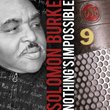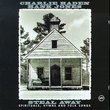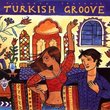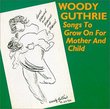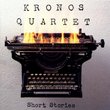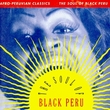| All Artists: John [Composer] Adams, Steve Reich, Edo de Waart, San Francisco Symphony Orchestra Title: Steve Reich: Variations for Winds, Strings and Keyboards: John Adams: Shaker Loops Members Wishing: 3 Total Copies: 0 Label: Philips Release Date: 7/4/2006 Album Type: Original recording remastered Genre: Classical Styles: Chamber Music, Historical Periods, Modern, 20th, & 21st Century, Symphonies Number of Discs: 1 SwapaCD Credits: 1 UPCs: 028947575511, 028947575511 |
Search - John [Composer] Adams, Steve Reich, Edo de Waart :: Steve Reich: Variations for Winds, Strings and Keyboards: John Adams: Shaker Loops
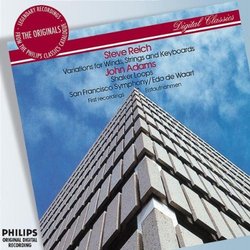 | John [Composer] Adams, Steve Reich, Edo de Waart Steve Reich: Variations for Winds, Strings and Keyboards: John Adams: Shaker Loops Genre: Classical |
Larger Image |
CD DetailsSimilar CDsSimilarly Requested CDs
|
CD ReviewsA Minimalist classic... svf | 07/17/2006 (5 out of 5 stars) "It's nice to have this back in print, and at a bargain-basement price no less. Variations for Winds, Strings, and Keyboards remains one of Steve Reich's most successful "big orchestra" efforts, and this is probably the best of the many recordings of Shaker Loops by John Adams ever made. In retrospect, it's probably the best thing Adams ever wrote, too. " More Maximum Minimalism Erik North | San Gabriel, CA USA | 08/13/2006 (5 out of 5 stars) "Steve Reich and John Adams probably feel the same way about being called "minimalist composers" as director Sergio Leone did about being called the master of the "spaghetti western." Perhaps it's best that we call them composers of modern music instead. But whatever you call the music that these two gentlemen have composed, there is a very taut and futuristic quality to it, as can be gauged from this most welcome rerelease from Philips of Reich's "Variations For Winds, Strings, And Keyboards", and Adams' "Shaker Loops", both composed in 1979 and premiered in concert in 1980, and first recorded in 1983--all by the San Francisco Symphony Orchestra and their then-Music Director Edo De Waart, who premiered many of the two composers' works. The remastering by the engineers at Philips is incredible, but a great deal of credit should also go to De Waart and the orchestra for their spine-tingling performances of these enchanting modern pieces. Because of their closeness in sound to modern film music (particularly John Williams, whose score for Spielberg's 2001 sci-fi opus A.I.: ARTIFICIAL INTELLIGENCE is of the same conceptual texture), these two works are much more accessible to listeners' ears than they may seem to be at first. It is an eerie world, very space-age and futuristic, that Reich's and Adams' music occupies, but it's a world well worth exploring, especially when it is via such a fine recording as this one." Wonderful Music, but Be Forewarned! Stuffsmith | Sydney, Australia | 12/31/2008 (3 out of 5 stars) "I can't say enough about Reich's 'Variations for Winds, Strings & Keyboards.' Although Reich himself found the piece a disappointment owing to the muddiness of controlling a large orchestra with percussive precision, I have always loved the piece for that exact quality. The sound-field is massive, and one has the sense of moving over an immense landscape; the murky ambience simply lends a greater mass and mystery to this beautiful piece. For fans of Reich's 'Music for 18 Musicians' and 'Music for a Large Ensemble', it is simply indispensible.
So when I saw that it had been remastered for this release, I eagerly bought it - only to find that it was only Adams' Shaker Loops that was remastered! It was, I thought, unfairly packaged to make it seem that the whole recording was remastered. If you already own the original CD, don't bother with this reissue. Those who do not own it yet have a real treat in store." |





